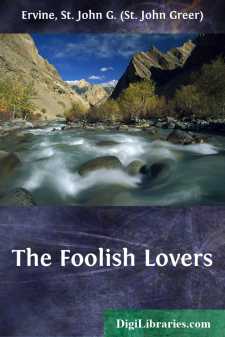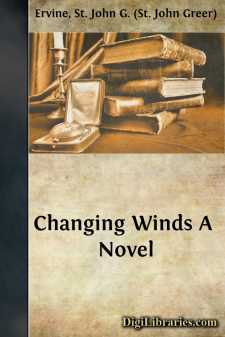Categories
- Antiques & Collectibles 13
- Architecture 36
- Art 48
- Bibles 22
- Biography & Autobiography 813
- Body, Mind & Spirit 142
- Business & Economics 28
- Children's Books 15
- Children's Fiction 12
- Computers 4
- Cooking 94
- Crafts & Hobbies 4
- Drama 346
- Education 46
- Family & Relationships 57
- Fiction 11828
- Games 19
- Gardening 17
- Health & Fitness 34
- History 1377
- House & Home 1
- Humor 147
- Juvenile Fiction 1873
- Juvenile Nonfiction 202
- Language Arts & Disciplines 88
- Law 16
- Literary Collections 686
- Literary Criticism 179
- Mathematics 13
- Medical 41
- Music 40
- Nature 179
- Non-Classifiable 1768
- Performing Arts 7
- Periodicals 1453
- Philosophy 64
- Photography 2
- Poetry 896
- Political Science 203
- Psychology 42
- Reference 154
- Religion 513
- Science 126
- Self-Help 84
- Social Science 81
- Sports & Recreation 34
- Study Aids 3
- Technology & Engineering 59
- Transportation 23
- Travel 463
- True Crime 29
The Foolish Lovers
Description:
Excerpt
THE FIRST CHAPTER
I
If you were to say to an Ulster man, "Who are the proudest people in Ireland?" he would first of all stare at you as if he had difficulty in believing that any intelligent person could ask a question with so obvious an answer, and then he would reply, "Why, the Ulster people, of course!" And if you were to say to a Ballyards man, "Who are the proudest people in Ulster?" he would reply … if he deigned to reply at all … "A child would know that! The Ballyards people, of course!"
It is difficult for anyone who is not a native of the town, to understand why the inhabitants of Ballyards should possess so great a pride in their birthplace. It is not a large town … it is not even the largest town in the county … nor has it any notable features to distinguish it from a dozen other towns of similar size in that part of Ireland. Millreagh, although it is now a poor, scattered sort of place, was once of great importance: for the mail-boats sailed from its harbour to Port Michael until the steamship owners agreed that Port Michael was too much exposed to the severities of rough weather, and chose another harbour elsewhere. Millreagh mourns over its lost glory, attributable in no way to the fault of Millreagh, but entirely to the inscrutable design of Providence which arranged that Port Michael, and not Kirkmull, should lie on the opposite side of the Irish Sea; and every Sunday morning, after church, and sometimes on Sunday afternoon, the people walk along the breakwater to the lighthouse and remind each other of the days when their town was of consequence. "We spent a hundred and fifty thousand pounds on our harbour," they say to each other, "and then the Scotch went and did the like of that!"—the like of that being their stupidity in living in an exposed situation. Millreagh does not admit that it has suffered any more than a temporary diminishment of its greatness, and it makes optimistic and boastful prophecies of the fortune and repute that will come to it when the engineers make a tunnel between Scotland and Ireland. Sometimes an article on the Channel Tunnel will appear in the Newsletter or the Whig, and for weeks afterwards Millreagh lives in a fever of expectancy; for whatever else may be said about the Tunnel, this is certain to be said of it, that it will start, in Ireland, from Millreagh. On that brilliant hope, Millreagh, tightening its belt, lives in a fair degree of happiness, eking out its present poverty by fishing and by letting lodgings in the summer.
Pickie, too, has much reputation, more, perhaps, than Millreagh, for it is a popular holiday town and was once described in the Evening Telegraph as "the Blackpool of Ireland." This description, although it was apt enough, offended the more pretentious people in Pickie who were only mollified when the innocent reporter, in a later article, altered the description to, "the Brighton of Ireland." With consummate understanding of human character, he added, remembering the Yacht Club, that perhaps the most accurate description of Pickie would be "the Cowes of Ireland." In this way, the reporter, who subsequently became a member of parliament and made much money, pleased the harmless vanity of the lower, the middle and the upper classes of Pickie; and for a time they were "ill to thole" on account of the swollen condition of their heads, and it became necessary to utter sneers at "ham-and-egg parades" and "the tripper element" and to speak loudly and frequently of the superior merits of Portrush, "a really nice place," before they could be persuaded to believe that Pickie, like other towns, is inhabited by common human beings....



